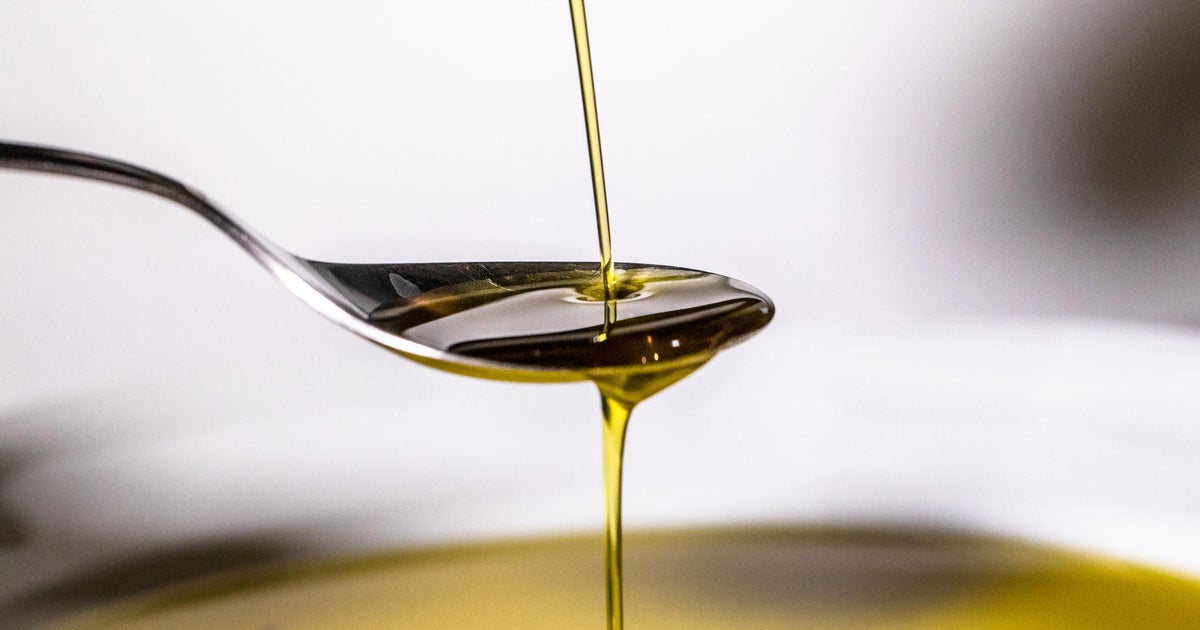CBS News
What are seed oils and do they pose health risks? Here’s what to know

Seed oils are making headlines, prompting fears around whether they can negatively affect your health.
Earlier this week, a study published in the journal Gut led to headlines likening seed oils to colon cancer fuel — but already some experts have said the headlines are misleading.
For a fuller picture of seed oils, here’s what to know.
What are seed oils?
Unlike other vegetable oils, which are derived from the fruit of a plant, seed oils are derived from the seed of a plant. For example, sunflower oil is made from sunflower seeds, making it a seed oil, whereas olive oil is made from whole olives, the fruit of the plant.
Some seed oils like sesame, for example, can also be fragrant and add flavor to a dish or dressing, making them popular in some kitchens.
What health risks do they pose?
“Based on the evidence we have, seed oils don’t pose any health risks,” Kristina Petersen, associate professor of nutritional sciences at Penn State University, told CBS News. “In fact, when you look at the evidence, it shows that intake of seed oils, instead of fats like butter and other animal fats, actually improves blood cholesterol levels and lowers risk of diseases like heart disease (and) Type 2 diabetes.”
Dr. Steven Shamah, director of endoscopy at Lenox Hill Hospital, told CBS News, “everything in moderation.”
Like all oils, seed oils contain fat, which is important for a balanced diet but in certain quantities. But the type of fat, saturated or unsaturated, is also important.
Saturated fats — found in meat, dairy and coconut — can raise both “good” and “bad” cholesterol levels, making limited intake recommended. The American Heart Association recommends that no more than 5% to 6% of your daily calories come from saturated fats.
Seed oils are rich in unsaturated fats, which can include both monounsaturated and polyunsaturated fats. Research suggests these fats may decrease “bad” and raise “good” cholesterol.
These oils are also high in the omega-6 fatty acid linoleic acid, which, while essential for bodily functions, should be balanced with omega-3 fatty acids, Shamah said.
“Linoleic acid, commonly found in seed oils in small amounts, is beneficial; however, in large amounts, puts significant stress on many forms of beneficial bacteria in the microbiome,” Shamah said, adding overconsumption can be common in modern diets because seed oils are in many processed foods.
Why do some people consider seed oils bad for your health?
Seed oil critics say linoleic acid, a omega-6 fatty acid found in these oils, breaks down into toxins when used for cooking, causing numerous health issues including inflammation, a weakened immune system and contributing to chronic illnesses.
While linoleic acid can be converted into arachidonic acid in the body, experts say this is not cause for concern.
Petersen said these claims of “toxic by-products” are common on social media, but clinical trial data shows markers of inflammation don’t change when people eat the omega-6 fatty acid linoleic acid. Plus, only a small percentage (about 0.2%) of omega-6s is converted to arachidonic acid, according to Massachusetts General Hospital.
Dr. Christopher Gardner, a professor of medicine at Stanford University School of Medicine in California and a nutrition scientist at the Stanford Prevention Research Center, also told the American Heart Association earlier this year that this argument around omega-6 fatty acids is flawed. While omega-6 can be pro-inflammatory, the amount of inflammation it’s associated with has not been shown to be harmful.
“Omega-6 is a polyunsaturated fat the body needs but cannot produce itself, so it must get it from foods,” Gardner said. “Polyunsaturated fats help the body reduce bad cholesterol, lowering the risk for heart disease and stroke. The American Heart Association supports the inclusion of omega-6 fatty acids as part of a healthy diet.”
People may not realize how much seed oils they’re eating because of the many processed foods that contain them. But instead of demonizing seed oils, Gardner argues the real concern should be overeating ultra-processed foods, which can have negative health impacts due to high levels of other ingredients like high-fructose corn syrup, sugar and sodium.
List of widely used seed oils
Commonly used seed oils include:
- Canola
- Corn
- Sunflower
- Pumpkin seed
- Chia seed
- Sesame
- Peanut
- Grapeseed
- Soybean
List of widely used oils that aren’t seed oils
Common oils that aren’t derived from seeds include:
CBS News
CBS News rides along with Texas sergeant at U.S.-Mexico border

Watch CBS News
Be the first to know
Get browser notifications for breaking news, live events, and exclusive reporting.
CBS News
Canada’s Trudeau faces calls to resign amid Trump tariff threat

Watch CBS News
Be the first to know
Get browser notifications for breaking news, live events, and exclusive reporting.
CBS News
Supreme Court to decide on TikTok’s future in the U.S.

Watch CBS News
Be the first to know
Get browser notifications for breaking news, live events, and exclusive reporting.


